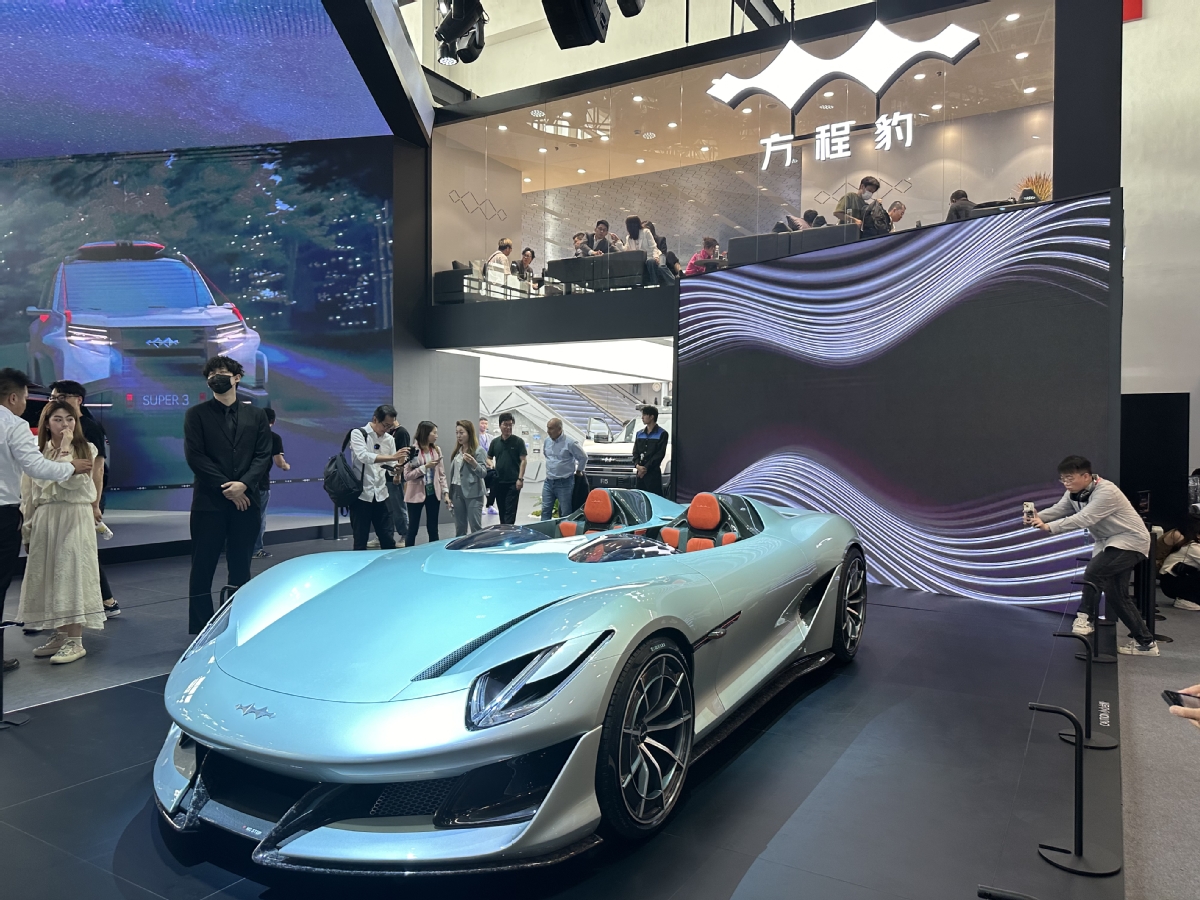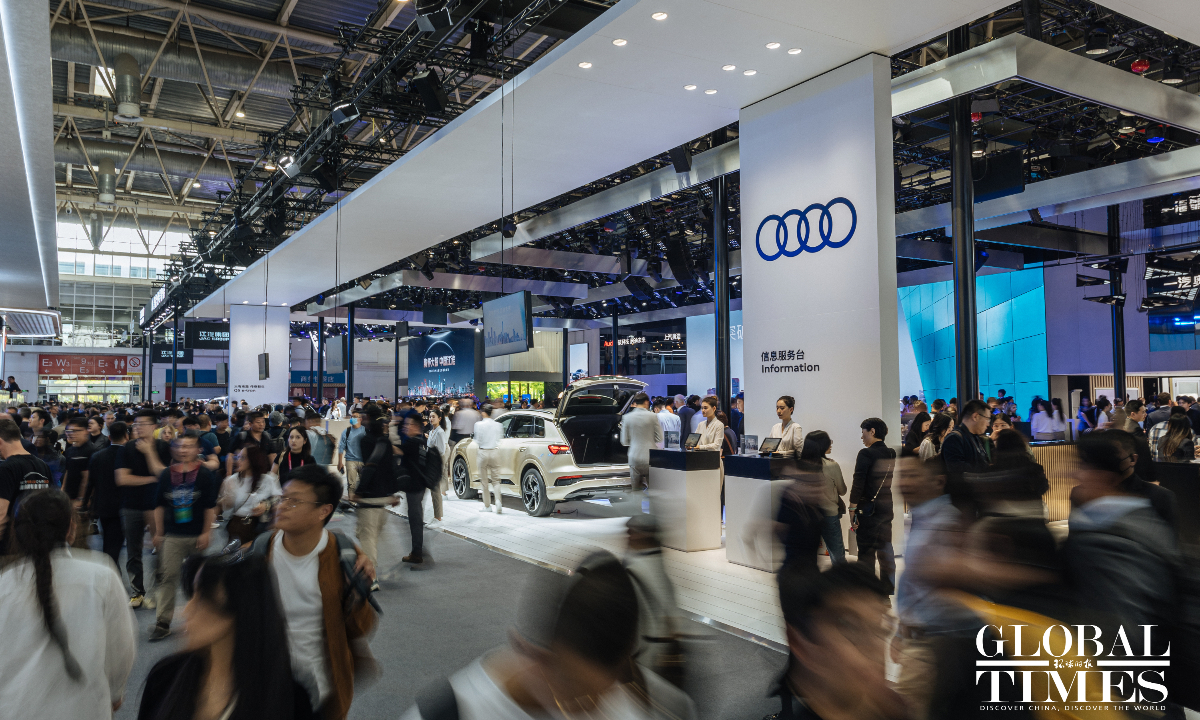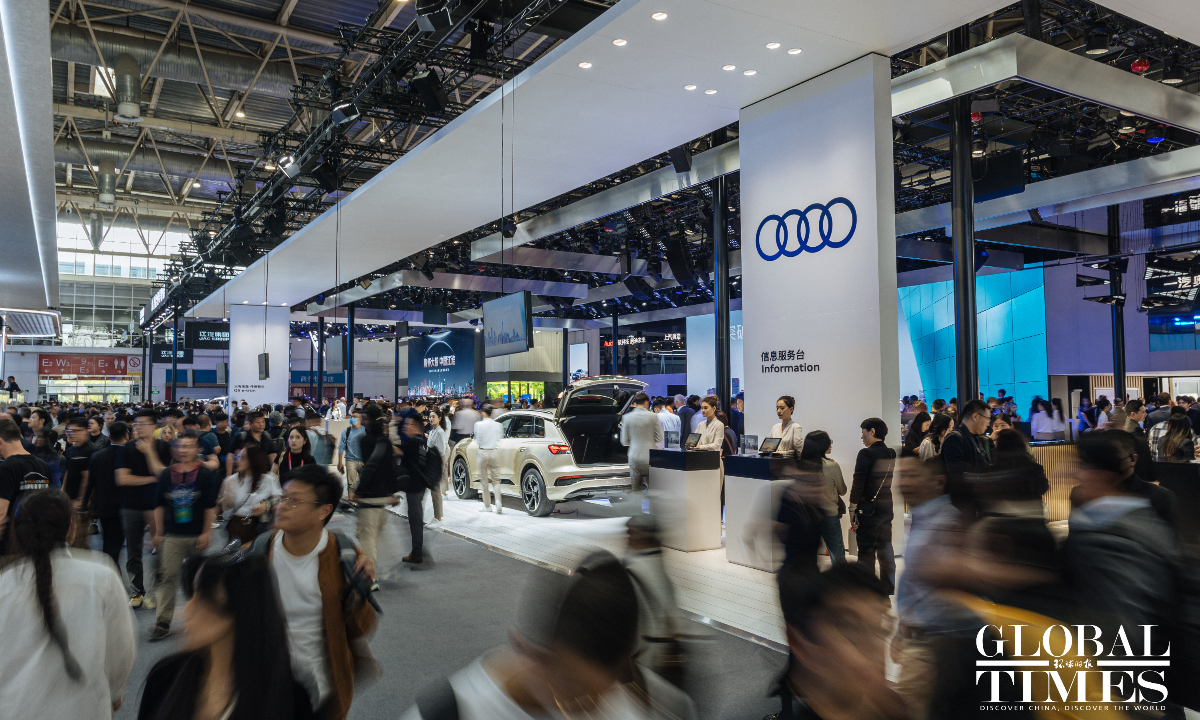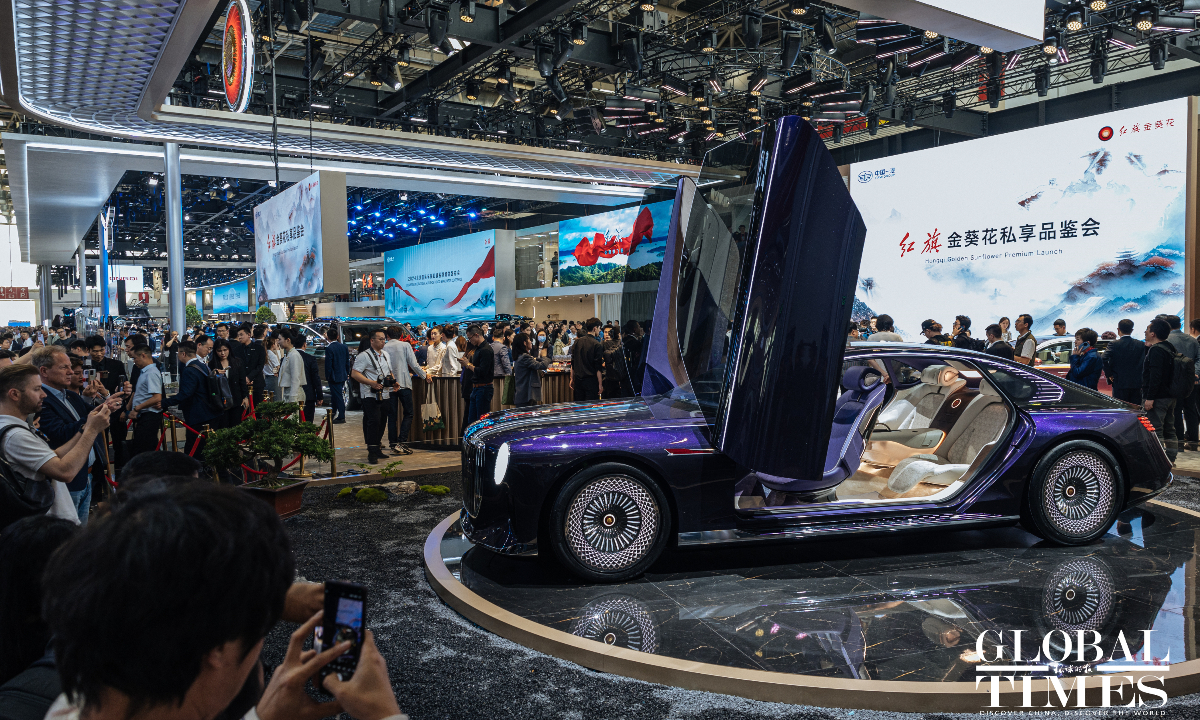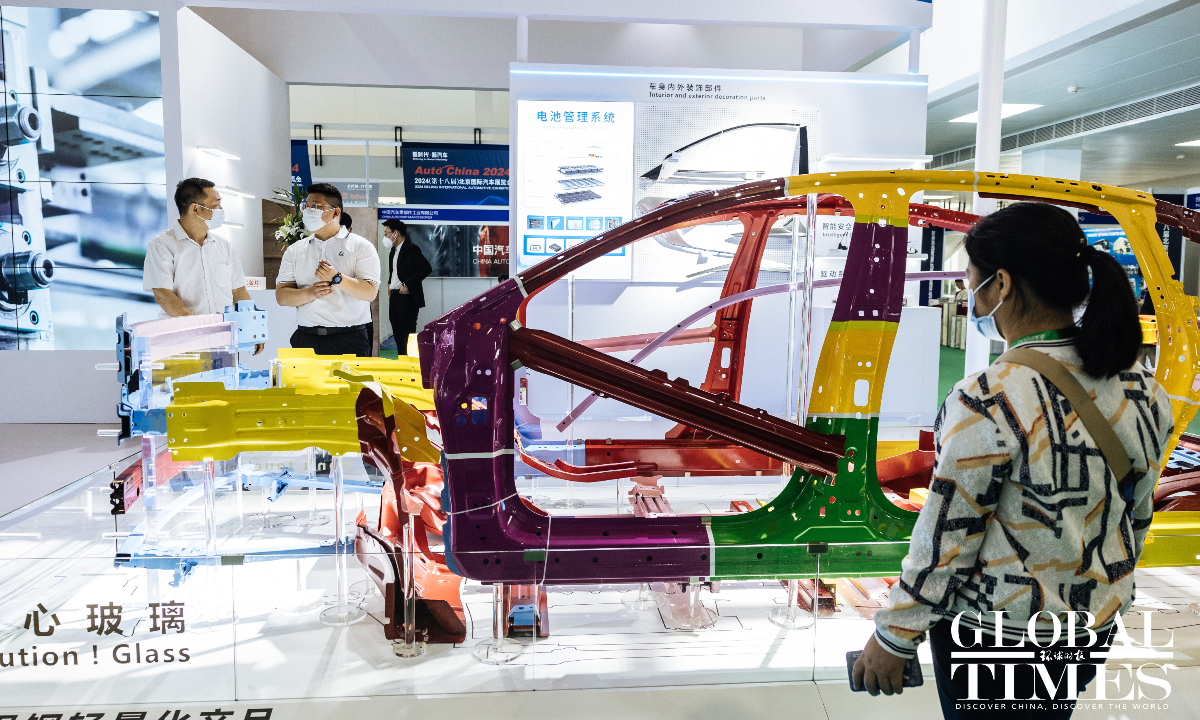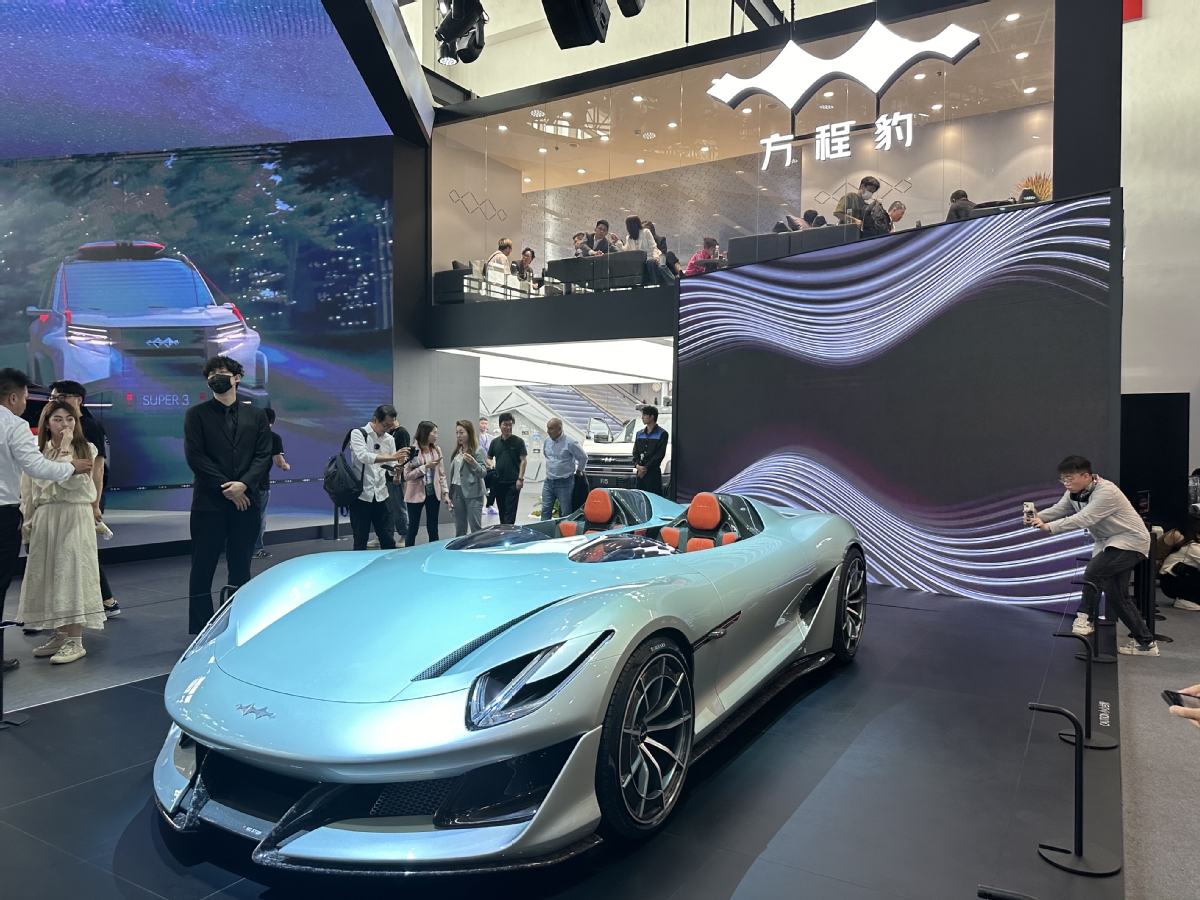 BYD’s Fang Cheng Bao showcases the Super 9 concept model at the 2024 Beijing auto show. [LI FUSHENG/CHINA DAILY]
BYD’s Fang Cheng Bao showcases the Super 9 concept model at the 2024 Beijing auto show. [LI FUSHENG/CHINA DAILY]
After a four-year hiatus, the Beijing auto show returns with a flurry of new products, particularly new energy vehicles, presented by global automakers, who aim to solidify their position in the world’s most competitive and largest auto market.
Running from Thursday to May 4, the event is hosting the world premieres of 41 concept models and 117 vehicles, with 30 from international brands. A total of 278 NEVs are on display, surpassing the 160 from the last edition in 2020, according to the event organizers.
The proportion of NEVs surpassing gasoline cars appears to be happening faster than anticipated. Data from the China Passenger Car Association show that in the first two weeks of April, passenger NEV sales accounted for more than 50 percent of the market share, with 260,000 units sold out of a total of 516,000 passenger cars.
Premium brands BMW, Mercedes-Benz and Audi are showcasing their achievements in electrification.
BWM’s electric i4 hatchback and electric MINI Cooper and Aceman crossover SUV are taking center stage. The BMW Vision Neue Klasse, which heralds the next generation of BMW vehicles, is on show for the first time in China.
BMW Group CEO Oliver Zipse announced plans to invest an additional 20 billion yuan ($2.76 billion) in the Shenyang production base in Liaoning province on Friday. The investment will support the localization production of BMW’s Neue Klasse models starting in 2026.
Mercedes debuted the all-new electric G-Class 4×4 and the Concept CLA Class four-door coupe. Their stage fleet consists of one world-premiere model, seven China-premiere models and eight models that are ready to hit the market.
Audi CEO Gernot Doellner made his first public appearance in China at this year’s Beijing auto show. The automaker debuted the all-new Audi Q6L e-tron SUV, the first vehicle tailored for the Chinese market based on the PPE premium electric platform.
This car, along with other new models based on the PPE, will be produced at the new factory in Changchun in Jilin province, underscoring China’s strategic position for Audi, he said.
However, their customers are being poached by newcomers. When Xiaomi CEO Lei Jun toured the Nio booth, he said that 30 percent of Xiaomi’s car owners had previously owned vehicles from the German trio. Nio CEO William Li said 70-80 percent of Nio’s car owners were from BMW, Mercedes and Audi.
Lei announced that it had received more than 75,000 orders in the four weeks since the launch of its first car, the SU7 electric sedan. It aims to deliver more than 10,000 units in June.
At Huawei’s booth of HIMA, which stands for Harmony Intelligent Mobility Alliance, its Stelato brand, codeveloped with BAIC, debuted at the auto show, joining the Aito and Luxeed brands. The brand’s first model S9 sedan is expected to hit the market in the second half of this year.
The IT giant is also showcasing the Aito M5, M7, M9 SUVs and Luxeed S7 sedan, which are already on sale. According to Huawei data, as of April 22, the HIMA family has sold 105,000 vehicles this year.
Besides codeveloped models, Huawei’s Qiankun, which is called the most sophisticated advanced driving assistance system to date, has garnered attention. Seven Chinese brands including Changan’s Avatr, Dongfeng’s Voyah and BAIC’s Arcfox have installed Huawei’s Qiankun in their cars.
Nio unveiled the all-new ET7, continuing its push into the luxury sedan market to solidify its position as a premium brand. Starting at 428,000 yuan, the ET7 Executive Edition is available for pre-order with deliveries beginning on Tuesday.
The startup is maintaining its focus on advancements in charging and battery swap technologies too.
Xpeng said its software and artificial intelligence training upgrades will enter a “superfast cycle” from May, which will be upgraded with its X9 MPV, G9 and G6 SUVs as well as P7i sedan. The automaker hopes the platform will help it expand to other Asian countries and Europe.
He Xiaopeng, founder and CEO of the automaker now backed by Volkswagen, said the software will be refreshed every two months.
Chinese traditional automakers have launched NEV sub-brands, marking a significant transformation.
At the auto show, FAW’s Hongqi presented three sub-brands, including the Hongqi New Energy. Dongfeng Motor is showcasing models under its multiple brands such as M-Hero, Voyah and Nammi. Meanwhile, Great Wall Motors is presenting models under its brands of Wey, Tank, Poer and Ora with technological achievements in NEVs.
GAC Group is displaying models of its Trumpchi, Aion and Hyper brands. The automaker will integrate Huawei’s Qiankun system into flagship models under the Trumpchi brand, with the first model expected to launch in January 2025.
